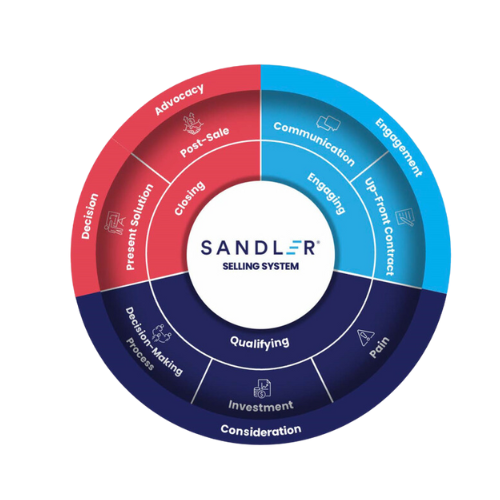The Importance of a Structured Selling System

Defining a Structured Selling System
The importance of having a structured selling system cannot be overstated. A structured selling system provides a clear framework for sales professionals to follow, ensuring consistency and efficiency in each transaction. This system typically involves a series of steps designed to guide the salesperson through the process, from initial contact with a potential buyer to the final close of the sale. By having a defined structure, sales teams can minimize errors, increase productivity, and ultimately improve their success rates.
A structured selling system acts as a roadmap that outlines the necessary actions and behaviors at each stage of the sales process. This includes understanding customer needs, presenting solutions, handling objections, and closing the sale. With a systematic approach, sales professionals can focus on building relationships and delivering value, rather than improvising and risking inconsistency. This structured approach not only benefits the seller but also provides the buyer with a seamless and professional experience.
The Dynamics Between Buyers and Sellers
The relationship between buyers and sellers is a dynamic interplay of needs, expectations, and exchanges. Understanding this dynamic is crucial for any salesperson aiming to succeed. Buyers seek solutions that meet their demands and align with their preferences, while sellers aim to present their offerings in a manner that resonates with those needs. A structured selling system helps balance this dynamic by ensuring that both parties are on the same page from the outset.
In traditional sales scenarios, buyers often express interest and seek information, while attempting to avoid immediate commitments. Sellers, on the other hand, are eager to present their solutions and close the sale. This can lead to a tug-of-war if not managed properly. A structured system allows sellers to anticipate buyer behavior, address their concerns effectively, and guide them through the purchasing journey, ensuring both parties achieve their objectives.
Building Trust Through Effective Communication
Effective communication is the cornerstone of building trust between buyers and sellers. A structured selling system emphasizes the importance of clear, open, and honest dialogue, which is essential for establishing credibility. From the initial contact, sales professionals are trained to listen actively, understand the buyer's needs, and communicate how their product or service can provide value.
By following a structured approach, sales professionals can ensure that every interaction with the buyer is purposeful and meaningful. Techniques such as setting upfront contracts or agendas for meetings help manage expectations and prevent misunderstandings. This proactive communication fosters trust, as buyers feel heard and valued, leading to stronger relationships and increased likelihood of successful transactions.
Addressing Client Needs with Precision
One of the primary goals of a structured selling system is to address client needs with precision and accuracy. This involves conducting thorough needs analysis to understand the specific challenges and objectives of the buyer. By doing so, sales professionals can tailor their approach and offer solutions that are highly relevant to the client's situation.
A structured system guides salespeople in asking the right questions and identifying the underlying pain points that drive the buyer's decision-making process. This deeper understanding allows sellers to present solutions that not only meet the buyer's immediate needs but also anticipate future requirements. Precision in addressing client needs not only enhances customer satisfaction but also positions the seller as a trusted advisor, further strengthening the buyer-seller relationship.
Overcoming Common Obstacles in Sales
Sales processes are often fraught with obstacles, such as handling objections, managing indecisive buyers, and competing with alternative solutions. A structured selling system equips sales professionals with the tools and strategies necessary to overcome these challenges effectively. By anticipating common objections and preparing responses in advance, sellers can navigate conversations with confidence and ease.
Additionally, a structured system provides techniques for managing buyers who are hesitant or indecisive. By setting clear expectations and offering guidance at each stage of the decision-making process, sellers can reduce buyer apprehension and facilitate smoother transactions. The system also helps differentiate the seller's offering from competitors by emphasizing unique value propositions and demonstrating how the solution addresses the buyer's specific needs.
Achieving Successful Transactions with a Systematic Approach
The ultimate goal of a structured selling system is to achieve successful transactions that satisfy both the buyer and the seller. By adhering to a systematic approach, sales professionals can ensure a consistent and high-quality experience for every client. This not only increases the likelihood of closing the sale but also enhances customer satisfaction and loyalty.
Successful transactions are the result of a well-executed sales process that addresses the buyer's needs, builds trust, and delivers value. A structured selling system provides the framework for achieving these outcomes consistently. By following best practices and leveraging proven techniques, sales professionals can navigate the complexities of the buyer-seller dynamic with confidence, ultimately leading to a higher rate of successful transactions and long-term business growth.

